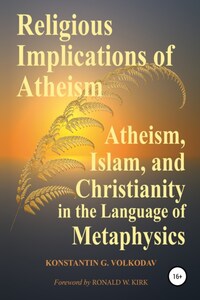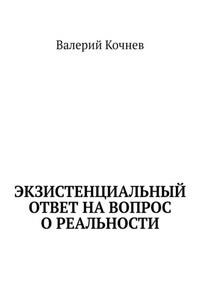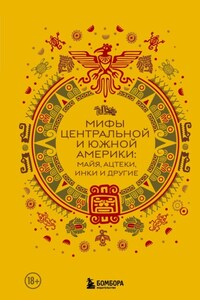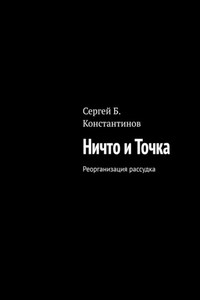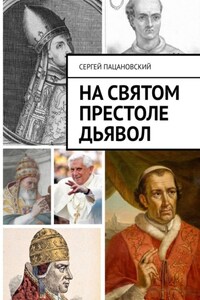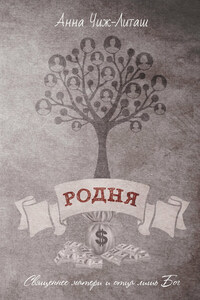Language: English
This is a translation from Russian into English of the book Религиозные Аспекты Атеизма: Атеизм, Ислам и Христианство на языке Метафизики. Translated by the author.
Unless otherwise noted, all Scripture quotations are taken from the New Revised Standard Version (NRSV) of the Bible, copyright © 1989 National Council of Churches of Christ in the United States of America. Used by permission. All rights reserved worldwide.
Scripture marked KJV comes from the King James Version.
Scripture marked LXX (in Greek) comes from the Biblia Graeca IVXTA LXX Interpretes (Septuaginta).
Praise for the Religious Implications of Atheism
A very good and timely book! Today, many people who seek God or hesitate in thought, especially observing the position, behavior and lifestyle of the Church hierarchy of various confessions, unfortunate people, easily fall under the influence of atheistic propaganda. This book is a wonderful answer and refutation of this propaganda, written by a very good and competent theologian. Comments are intelligible and well-grounded, easy and interesting to read! I recommend to everyone!
–Sergey N. Kurtalidi,
historian, theologian (Athens)
The format of this book is very interesting—a discussion within a discussion. I hope that the questions posed by the author will resonate with readers, and a discussion will emerge that expands and complements this debate. The book is written in good language, easy to read and interesting. The density of thought is high. I also want to note that the author’s proposal to read selectively interested topics makes sense. The book is made so that it can be read in arbitrary parts, and not just sequentially. The book touches upon not only theological and philosophical aspects, but also publicistic and historical prospects.
–Yaroslav Taran,
poet, writer, editor-in-chief of the portal “Air Castle” (St. Petersburg)
Atheism except by the grace of God is hardwired into mankind’s spiritual DNA. The original sin made us think we were clever. Our thoughts were equal to the Creator’s thoughts, or superior. So rather than judge ourselves by God’s Word as we ought, we routinely choose to judge God by our fallen, humanistic standards. Thus, practical if not philosophical atheism prevails in the world. We know God, but we naturally and universally suppress the truth in unrighteousness to our own hurt (Rom. 1:18).
Thanks to God our Savior for His grace, for not leaving us in that condition! He is wont to save His creatures, those whom He created in His own image. Yet He also makes us partners, however minor, in the redemption of His people. Therefore, knowing what we are up against is central to the calling of the Great Commission to make Christ’s disciples.
To offer a bit of an aid in this quest, after Cornelius Van Til and Rousas J. Rushdoony, I am a presuppositional apologist. Referencing the debate between Hamza Tzortzis and Lawrence Krauss from this book, the reason they cannot agree is that they operate on entirely different premises, literally completely different universes. One universe is finite and acts according to fixed Law. The other, according to Krauss, is a multi-verse of infinite members capable of absolutely any character. Ultimate contingency. Anything can and like does happen. Empirical arguments such as are common in evangelical apologetics depend on a common ground that does not really exist, unless one is willing to assume a Biblical perspective at least for the sake of argument.
In the documentary movie, The Principle, Krauss admits what NASA has found—a plane field of ancient extensive microwave energy resulting from creation propagates on the equator of the Earth. His only response is that sure, it exists in this universe, but likely not in the rest of the multi-verse. In other words, his scientific, materialistic answer is that he must base his answer speculatively on the supposition of a reality of his imagination alone! He merely begs the question: how is this scientific?
The materialist’s problem is a deep one. Cosmologist Paul Steinhardt, one of the architects of the Big Bang theory, and of the theory of inflation—that tiny fraction of a second when chaos becomes order—has second thoughts. About a decade ago Steinhardt reversed his original view as an impossibility due to a probability of one in a googolplex [ten to the power of 10 >100]. In other words, something caused Steinhardt, on this point, to abandon the notion of ultimate contingency in favor of a creationist universe of law. [1]
A fluid and inconsistent view of reality is the most common practice among the supposedly rational materialists. With Jean Paul Sartre, knowledge of reality is impossible, but since we live in this world with all its laws, meaning and consequences, we take a leap of faith to accept it—though not the God of this reality. In so suppressing the knowledge of God in unrighteousness (cf. Rom. 1:18), they give themselves license to make themselves god.
Closer to home, an elderly friend, a brilliant died-in-the-wool scientific materialist, admitted that he had no rational basis for his beliefs regarding origins, law, love, meaning, self-sacrifice—which he himself lived—etc. Yet he insisted we Christians are irrational. There is no ground of argument with such a person. He will always have a response to any empirical evidence. When I mentioned Steinhardt’s reversal with reference to the odds against inflation, he answered it is only zeros. I asked in return if I could borrow a thousand dollars, since I could repay with my own idea of zeroes. Even he had to smile at that. What was so frustrating was that he lived a more consistently Christian life than many Christians I know.
Jesus said, we know a tree by its fruit. This is the basis of a Biblical epistemology. What are the consequences of practical atheism? What are the consequences of the Biblical view of all things? The atheistic model cannot predict meaning, love, etc. Ultimate contingency holds inherently, if consistent, zero meaning, zero law, zero morality. Materialistic environmentalists assume a moral superiority of non-human nature over humanity. On what rational ground? How is there any basis of judgment without a fixed law?
On the other hand, the Biblical model, when one is willing to assume the presupposition for the sake of argument, even as a purely scientific model, does an infinitely better job of predicting nature, human conduct, etc. Again, with Van Til and Rushdoony, my apologetic is presuppositional. God never defends His existence or His Ways. Rather He merely declares them. Likewise, the Bible never defends God’s existence or His Ways. Apostle Paul merely asserts that we ought not to say to the Potter, why do You make us thus? (Rom. 9:20–21)
